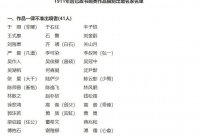(Hong Kong News) China financial data supplier Wind Information CO (referred to as Wan De) has begun to restrict international users' access to some information, making it more difficult for foreign economists and investors to analyze the Chinese economy.Performance.
The Wall Street Journal reported on May 27 that as the Chinese government adopted a series of measures to combat foreign companies to collect Chinese information activities, investors and analysts outside China said that they could no longer access some data from Wan De's terminal platformEssenceThese data that were previously considered public include online retail shopping trends, land auction records, and satellite images that show different cities in China and abroad to measure energy consumption.
Overseas users will receive warnings when trying to access these data, saying that according to relevant laws and regulations, their location cannot obtain these data, or they are required to fill in the form.Examine.However, some bank staff and investors have shown that they are unwilling to sign documents that may cause the company to further be restricted by the use terms.
Some analysts and investors say that Wanne's ability to restrict their data may weaken their ability to evaluate models for the status of China's economy and specific industries.
A spokesman said that the company has the obligation to understand the purpose of overseas data recipients to use these data.Chinese users say that local users can still access these restricted data.
With the newly revised anti -spy law law, many foreign think tanks and research institutions have also reported that they cannot renew the service of thousands of databases.Investors and financial operators said that they did not encounter problems when they renewed their services.
Wan Deng said that many foreign think tanks, research companies and other institutions cannot renew the service.It also said that the company's economic data that the company visited users was based on the standards of global data companies, and the proportion of data that was canceled or adjusted was consistent with the global peers.



